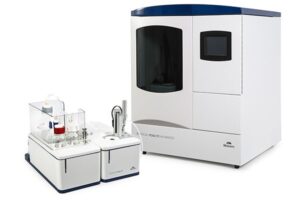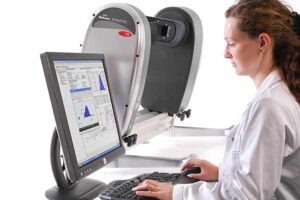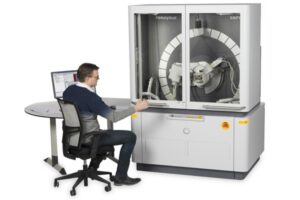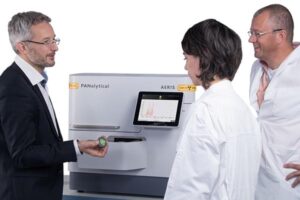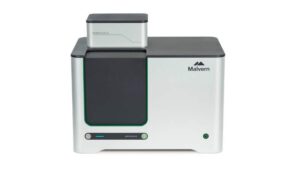Malvern Panalytical Announces New Webinars for November
Malvern Panalytical has announced the next set of webinars for the November and December period, including a particle size masterclass, ‘Using Rheology to Characterise Asphalt for Roofing Applications’ and ‘Major Advancement in the Elemental Analysis of Metal Sulfides’.
If you are interested in attending any of these events, please make an enquiry using the form on this page.
Particle Size Masterclass Webinar
Malvern Panalytical has announced a new webinar: ‘Particle Size Masterclass: Best Practice with Setting Your Particle Size Specifications’.
One of the most important things when setting a specification is to relate it to why you need to measure particle size. For example, what aspect of product performance, or what part of the manufacturing process, are you trying to control?
In this webinar, Malvern Panalytical looks at how to choose the appropriate particle size parameter to specify product performance. To achieve this, the company will describe some of the range of parameters calculated from the particle size distribution, and how they can be used with appropriate tolerances to provide robust specifications.
The webinar will take place on 6 November from 10:30-11:30 (GMT-5:00) and will be hosted by Malvern Panalytical’s technical support supervisor Anne Virden.
Anyone using particle sizing data to control production processes or product quality is suggested to take part, as well as supervisors or lab managers responsible for particle sizing measurements.
Visitors will learn how to choose the right parameter to follow your process, how to set appropriate tolerances on your particle sizing specifications and how to set robust and reliable specifications for particle sizing measurements.
Webinar: Using Rheology to Characterise Asphalt for Roofing Applications
Malvern Panalytical has announced a new webinar titled ‘Using Rheology to Characterise Asphalt for Roofing Applications’.
This presentation will review some alternate testing techniques that relate to several commonly performed roofing asphalt tests. These methods will be discussed along with actual data presented from automated DSR determination of softening point, penetration, capillary and rotational viscosity measurements.
When implemented for quality control, intelligent software can be used to determine pass/fail criteria, automatic report generation and escalation decisions for out-of-spec materials to company procedures.
Other techniques investigated include adhesive pull-off, prediction of sag and high-shear analysis to simulate processing conditions.
This webinar will take place on 8 November from 10:30-11:30 (GMT-5:00).
Webinar: Capillary Rheometry in the Fabrication of Polymer Scaffolds for Tissue Engineering
. Malvern Panalytical has announced its new webinar, titled ‘Capillary Rheometry in the Fabrication of Polymer Scaffolds for Tissue Engineering’.
Polymers are extensively used for tissue repair and replacement in the form of implantable biomedical scaffolds. Examples include surgical meshes, cardiovascular stents, nerve conduits, bone regeneration scaffolds and fixation devices.
Thermal processing is a common denominator in all these applications. Rather than discuss the use of the rheometer to study polymer rheology (on which a large body of literature exists), Malvern Panalytical’s webinar will focus on the use of the capillary rheometer as a tool for optimising the process parameters with a few grams of the polymer before using up hundreds of grams in extruders.
A capillary rheometer is indispensable in the evaluation of degradable polymers that have a tight window for processing. Join Malvern Panalytical for this and more on rheology as it relates to this application.
A live question and answer (Q&A) session with the attendees will conclude the web seminar.
This event will take place on 13 November from 10:30-11:30 (GMT-5:00).
Webinar: Major Advancement in the Elemental Analysis of Metal Sulfides
Malvern Panalytical has announced its latest webinar, titled ‘Major Advancement in the Elemental Analysis of Metal Sulfides’.
Traditionally, most accurate analysis of sulfide concentrates of copper (Cu), Zinc (Zn), lead (Pb), molybdenum (Mo) and nickel (Ni) is done by wet chemistry, which takes a long time and only provides results for one analyte at the time.
This webinar shows that precise and accurate analysis of sulfidic-base concentrates could also be done with X-ray fluorescence (XRF) technique in much shorter time and providing simultaneous results of all major and minor elements in the sample.
This event takes place on 15 November from 10:30-11:30.
Webinar: Particle size and 21CFR Part 11
Malvern Panalytical will be hosting new webinar ‘Particle Size and 21CFR Part 11 – Data Integrity with Your Mastersizer 3000’.
Laser diffraction is a powerful technique for measuring particle size rapidly and with statistical significance. The particle size parameter is a critical indicator of process consistency and product quality in many industries.
These two factors have led to widespread adoption of laser diffraction for quality control or quality assurance purposes. In the quality control (QC) / quality assurance (QA) environment, there may be additional requirements around user access and data integrity, in order to ensure the quality of the data itself is high and that this is recorded in an audit trail. The requirements for the most robust levels of data integrity are described in 21CFR Part 11.
In this webinar, Malvern Panalytical will discuss the issues involved with data integrity, using the Mastersizer 3000 as an example. This will include an overview of the Malvern Panalytical security system, which provides user access control and 21CFR Part 11 compatible audit capability, as well as discussion of the application of 21CFR Part 11 to laser diffraction.
This event will take place on 21 November from 10:30-11:30 (GMT-5:00).
Webinar: Zetasizer Ultra and Pro Demo
Malvern Panalytical will be hosting a new webinar to provide a demo of the Zetasizer Ultra and Pro.
Led by technical support manager Mike Kaszuba, this will be the first live online product demonstration of the new Zetasizer Ultra and Pro, and will show how easy it is to take measurements and assess results on the new platform.
A quick overview of the main highlights and features of the two products, including ZS Xplorer software, will be followed by a demonstration of how to set up size and zeta potential measurements of different samples.
This event will take place on 22 November from 10:30-11:30 (GMT-5:00).
Webinar: Co-crystals and Chemistry Characterisation Optimisation
Malvern Panalytical has announced that its partner Concept Life Sciences will be hosting a new webinar titled ‘Pharmaceutical Co-crystals and Chemistry Characterisation Optimisation of Drug Properties’.
Taking place on 27 November at 15:00 (GMT), this webinar will discuss how co-crystallisation is gaining significant interest as an enabling solution for active pharmaceuticals, which have poor or limited bioavailability, and as a mechanism for intellectual property (IP) protection.
This webinar in the eighth Concept Life Sciences’ series. It sees Concept and Malvern Panalytical bring together two leading industry experts to present recent developments in the chemistry, regulation and characterisation of active pharmaceutical ingredients (API) co-crystals.
Lead chemist at Concept Life Sciences Kim James will discuss co-crystal fundamental concepts, including their design, chemistry, synthesis and scale-up. He will present the advantages conferred to the discovery and development pathway through co-crystals exhibiting enhanced drug-like properties, together with the recent evolution in the US Food and Drug Administration (FDA) approach to these forms, and their viability as development candidates.
The presentation from Malvern Panalytical’s regional X-ray powder diffraction (XRD) product manager in the Europe, Middle East and Africa region (EMEA) Stjepan Prugovecki will then cover the relevance of crystal structure in the characterisation of co-crystals and the methods for determination and refinement of their crystal structure. It will include discussions on structural differences and similarities between co-crystals, salts, polymorphs, hydrates and solvates, as well as the role of crystal structure in intellectual property protection and patents. It will finish with analytical methods for identification and stability assessment of co-crystals in a bulk pharmaceutical product.
This webinar will be hosted by chief technical officer at Concept Life Sciences Simon Bristow, who has more than 25 years’ experience in pharmaceutical development and API process technology research.
The webinar will be of interest to medicinal chemists, process research specialists, pre-formulation and materials characterisation scientists and those involved in pre-clinical drug development.
Webinar: Using the ASD FieldSpec® for Monitoring the Mine Environment
Malvern has announced it will be hosting a webinar focusing on the ASD FieldSpec® instrument, how it can be used to aid in determining the environmental impact of mining and why this is important.
Speaker Dr Sebnem Düzgün is a full professor and Fred Banfield distinguished endowed chair in the department of mining engineering at Colorado School of Mines.
Anybody that may have an interest in learning about remote sensing and the ASD FieldSpec® spectroradiometer’s involvement in monitoring and aiding in determinating the environmental impact of mining should attend the webinar to receive:
- An overview of sustainable mining and the environmental impacts of mining
- Basic principles of remote sensing and its applications in mine environment monitoring
- Use of the ASD FieldSpec for ground truth and image analysis purposes such as implementing remote sensing techniques and how to interpret the acquired data for different purposes
- A case study on soil pollution mapping for an abandoned coal mine
This event will take place on 28 November from 12:00-13:00 (GMT-5:00).



